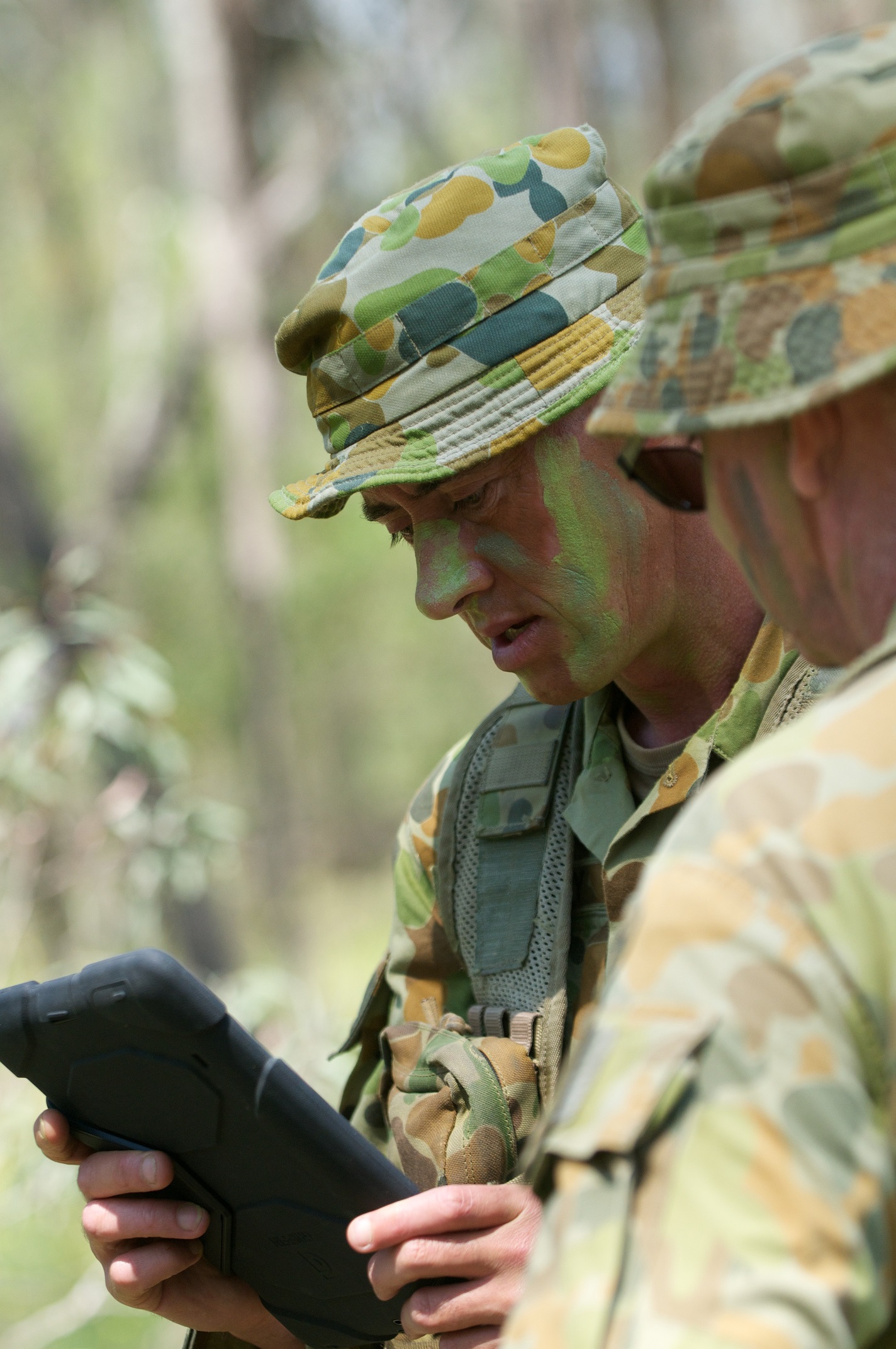
A career officer [or soldier] is going to school as long as he [or she] lives.
General Matthew Ridgway & Harold H. Martin, Soldier: The Memoirs of Matthew B Ridgway, 1956, p. 27
Army should harness the potential of the digital platform to empower all soldiers to master the profession of arms. A digital learning platform would become a key part of Army’s recent shift to embrace blended learning, which uses technology to engage with students outside of the classroom. Flagged as a priority in the 2016 Ryan Review, blended learning is typified by the emergence of this blog and The Cove, together with the growing use of Twitter by Army personnel to share professional education material.
A learning platform for Army
A digital learning platform would become Army’s intellectual spine—the primary conduit for capturing and disseminating information, and developing skills, knowledge, and attitudes.
A digital platform is a technology that provides a digital space for interactions between participants. Facebook, Twitter and LinkedIn are popular examples of public platforms; students will also be familiar with platforms like Moodle and Blackboard Learn.
Just like these commercial platforms, a digital learning platform for Army would enable soldiers to access content and interact across time and space. This new platform could be thought of as an evolution of Army’s current intranet (SharePoint). Its core content would be delivered by official posts ‘pushed’ to appropriate users, while user-generated content could be ‘pulled’ by peering further into the platform.
A duty to learn
A digital learning platform for Army could give meaning to the important, but amorphous, obligation for soldiers to pursue continuous professional development.
The Australian Army’s capstone publication, LWD-1, states that “every soldier has an individual responsibility to study the profession of arms,” but is silent on how soldiers might achieve this task. As Army’s public blog Land Power Forum has observed, there is no shared understanding in Army as to what professional mastery requires. This results in inconsistency in how individuals fulfil their learning responsibility, and makes professional mastery difficult to assess, and to attain.
The answer provided by technology is simple. By adopting a digital learning platform, Army could put tailored information at every soldier’s fingertips. Imagine a library that is sorted and ordered in the perfect way for every individual soldier’s needs. Most Gen Y natives no longer know how a library is laid out. But while we may not be familiar with the invention of Melvil Dewey, we are expert users of those of Mark Zuckerberg (Facebook), Jimmy Wales (Wikipedia), and Jack Dorsey (Twitter).
As futurist Salim Ismail explains, “the physical world is still there, of course, but our relationship to it is changing fundamentally… for many of us, our memories aren’t in our heads anymore—they’re buried in our smartphones.” More than this, the modern soldier’s smartphone is a library. It is a portal to an entire ecosystem of knowledge and real-time news, which offers the capacity to store, index and quickly retrieve information, and to connect with other users.
Education in the digital age
An Army digital learning platform—accessible from any personal device—would capitalise on soldiers’ familiarity with using digital media, and create a truly immersive profession of arms.
The design of the platform would be customisable, so that it could deliver content specific to each individual user. Just as ‘like’ or ‘follow’ buttons allow social media platforms to increase responsiveness to users over time, Army’s learning platform would let users build a personalised ‘wall’ that populates with information appropriate to their job requirements and professional interests. They could then bounce through content until they found a page, video, or doctrine snippet that could increase their knowledge.
The platform would also be an interactive experience. It would enable soldiers to engage with and react to content, and to post comments and engage in discussion. In this respect, adopting an Army digital learning platform would explode the antiquated notion that professional development is a solitary experience. Gen Y is the collaboration generation. Moreover, Australian soldiers are inherently competitive and value mateship. An Army digital learning platform would enable soldiers to benefit from peer interaction—a soldier with knowledge in one area could help a mate to upskill.
A digital platform also accounts for the reality that Army’s experts, and students, are spread across the country. A platform weaves geographically dispersed students together and allows great content that may once have only been shared within one unit, or battalion, to ‘go viral.’
It would also create a more seamless approach to learning. Overreliance on in-person courses can result in a fragmented learning experience. A lecture only has impact for as long as it is recalled by the soldiers it was delivered to. However, content uploaded to the platform will stand until it is superseded.
Importantly, a digital learning platform would not obviate the need for face-to-face instruction and mentorship. However, as Army’s current pivot to blended learning recognises, professional mastery will never be attained just within the four walls of a lecture room. The road to mastery is a multi-modal experience.
The future is now
The future of learning is upon the Australian Army. That future is online, immersive, connected and social. It allows the pursuit of knowledge to be self-driven, but collectively moderated. The modern soldier thirsts for this environment in their personal life. Technology is now available to create the optimal professional learning environment for the modern soldier. Army should adopt it to stay current.
About the authors
David is the Training Officer, Depot Company at the School of Infantry.
Katherine is a masters candidate at Harvard University’s John F. Kennedy School of Government.


One thought on “Developing Blended Learning: A Digital Learning Platform for Army”
This article nails the future potential and I read it on my phone. Point proved.
Comments are closed.